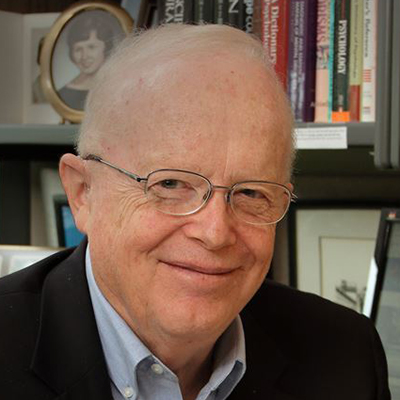-
About
Our Story
back- Our Mission
- Our Leadershio
- Accessibility
- Careers
- Diversity, Equity, Inclusion
- Learning Science
- Sustainability
Our Solutions
back
-
Community
Community
back- Newsroom
- Discussions
- Webinars on Demand
- Digital Community
- The Institute at Macmillan Learning
- English Community
- Psychology Community
- History Community
- Communication Community
- College Success Community
- Economics Community
- Institutional Solutions Community
- Nutrition Community
- Lab Solutions Community
- STEM Community
- Newsroom
- Macmillan Community
- :
- Psychology Community
- :
- Talk Psych Blog
Talk Psych Blog
Options
- Mark all as New
- Mark all as Read
- Float this item to the top
- Subscribe
- Bookmark
- Subscribe to RSS Feed
Talk Psych Blog
Showing articles with label Industrial and Organizational Psychology.
Show all articles
Author
02-06-2020
08:10 AM
A recent Templeton World Charity Foundation conference, Character, Social Connections and Flourishing in the 21st Century, expanded my mind, thanks to a lecture by famed evolutionary biologist David Sloan Wilson. This much about him I had known: His multilevel selection theory argues that evolution favors survival-enhancing group as well as individual behaviors. Within groups, selfishness beats altruism. Yet altruistic groups triumph over selfish groups. What I learned from his lecture and our ensuing dinner conversation was that his passion has shifted to understanding and enabling effective real-world groups—from nonprofit organizations to schools to faith communities to businesses. How might people in such groups more effectively work together to accomplish goals? To enhance work team effectiveness, Wilson and his colleagues suggest implementing a group of basic principles. They point out that groups that effectively manage shared resources, such as irrigation, forests, and fisheries, follow principles that (a) integrate evolutionary principles of group selection with (b) “core design principles” identified by political scientist and economics Nobel laureate Elinor Ostrom, seasoned with (c) behavior-change insights articulated by psychologist Steven Hayes. The resulting eight principles for success: Strong group identity and purpose. Groups know who they are and what sets them apart from other groups. Fair sharing of benefits and costs. Proportional sharing (without some members benefiting at the expense of others) advances group over individual advancement. Fair and inclusive decisions. Consensus decision-making, with uncensored input, enables smart decisions, and, again, safeguards against some benefiting at others’ expense. Tracking results ensures that agreements are honored. Graduated sanctions. Accountability for misbehaviors ranges from gentle reminders to expulsion. Conflict resolution mechanisms. When disagreements occur, the group implements fair and fast resolution procedures. Authority to self-govern. In larger societies and organizations, subgroups are empowered to organize and operate. Appropriate coordination with other groups. In larger social systems, operating subgroups must integrate with other subgroups. How striking it is, notes Wilson, that the principles Ostrom identified from successful commons resource-managing groups are so similar to “the conditions that caused us to evolve into such a cooperative species.” These principles—when implemented by effective leaders—build a group’s moral foundation, protect it against self-serving behaviors, and allow its members to freely express themselves. To assist groups in implementing the core design principles drawn from evolutionary, political, and psychological science, Wilson and colleagues have authored a book (Prosocial: Using Evolutionary Science to Build Productive, Equitable, and Collaborative Groups), developed a websitethat offers training and resources, and produced an online magazine that tells implementation stories. Wilson’s life journey—from son of a famous author (The Man in the Gray Flannel Suit) to science theorist to social entrepreneur—is unique. Yet in other ways, his professional pilgrimage is similar to our own . . . as our lives have unfolded in unanticipated ways—sometimes with false starts leading to brick walls, sometimes with gratifying new directions. Little did I expect, when first encountering Wilson’s work, that it would later produce practical resources for helping groups “learn about and adopt design principles to improve their efficacy.” (For David Myers’ other essays on psychological science and everyday life, visit TalkPsych.com.)
... View more
Labels
-
Industrial and Organizational Psychology
-
Social Psychology
0
0
2,663
Author
11-24-2015
10:54 AM
“So, what do you make of this?,” asked the woman in the airplane seat next to me this week, as she pointed to an article about corporations cancelling meetings in Paris in response to last week’s terrorist attacks. Eight guys with guns commit horrific evil and capture the world’s attention—leading to calls for revenge, proposals to ban Syrian refugees from the U.S., and fears of European travel. When terrorists kill people in bunches, they create readily available—and memorable—images that hijack our rational thinking. Meanwhile, I replied, even more people—some 200—die of homicidal gun violence in the U.S. each week. But they mostly die one by one, eliciting little or no national outrage or resolve. Is this (without discounting the likelihood of future terrorist acts) yet another example of our human tendency to fear the wrong things (as I’ve explained here, here, and here)? The shared threat of terrorism further hijacks rationality, by triggering us/them thinking, inflaming stereotypes of the “other” among us, and creating scapegoats. Thus, although refugees have reportedly committed no terrorist acts—either in Paris or, since 2001, in the USA—more than half of U.S. governors are seeking to block Syrian refugees, and reported threats against Muslims and Mosques have increased. “We don’t know who [the Syrian refugees] are,” declared Donald Trump. “They could be ISIS. It could be the great Trojan Horse.” Museum of History and Industry, Seattle Post Intelligencer Collection. A personal note: U.S. politicians’ calls to effectively shut out Syrian refugees, and even (a la Donald Trump) to register all Muslims in a database, evoke a déjà vu. In 1942, while I was in my mother’s womb, a fear-filled American government gave the Japanese-Americans living on my Bainbridge Island, Washington, home six days to pack a suitcase and be Sixty-two years later ground was broken for a national memorial at the historic site, with former internee and Bainbridge Island Japanese American Community president, Frank Kitamoto, declaring that “this memorial is also for Walt and Millie Woodward, for Ken Myers, for Genevive Williams . . . and the many others who supported us” and who challenged the forced removal at the risk of being called unpatriotic. The motto of the beautiful memorial, which I visit on nearly every trip home to Bainbridge: Nidoto Nai Yoni—Let It Not Happen Again.at the ferry dock for that March 20th day that began the internment of 120,000 of our fellow Americans. Among their tearful friends and neighbors at the dock was my father (who for many of them was their insurance agent, and who maintained their insurance over objections from insurance companies who viewed the internees properties as at-risk). As a Bainbridge resident, Washington’s current governor, Jay Inslee, knows that story well, and recalled it when standing apart from other governors wanting to exclude Syrian refugees: We are a nation that has always taken the path of enforcing our freedom, our freedom of religion, our freedom of speech, our humanity, our relationship with the rest of the world. And we've hewed to those values, even in troubled times. And when we haven't, we've regretted it. I'll give you an example. I live on Bainbridge Island, this little island just west of Seattle. And it was the first place where we succumbed to fear in 1941 after Pearl Harbor. And we locked up Washington and American citizens, and we sent them to camps—Japanese-Americans. . . . So my neighbors were locked up by the federal government and sent to camps for years while their sons fought in the Army in Italy and were decorated fighting for democracy. We regret that. We regret that we succumbed to fear. We regret that we lost moorage for who we were as a country. We shouldn't do that right now. - Originally posted by David Myers on the Talk Psych blog on November 21st, 2015.
... View more
Labels
-
Emotion
-
Industrial and Organizational Psychology
1
0
1,785
Topics
-
Abnormal Psychology
6 -
Achievement
2 -
Affiliation
1 -
Behavior Genetics
1 -
Cognition
7 -
Consciousness
8 -
Current Events
28 -
Development Psychology
13 -
Developmental Psychology
9 -
Drugs
1 -
Emotion
12 -
Gender
1 -
Gender and Sexuality
1 -
Genetics
3 -
History and System of Psychology
3 -
Industrial and Organizational Psychology
2 -
Intelligence
4 -
Learning
3 -
Memory
2 -
Motivation
3 -
Motivation: Hunger
2 -
Nature-Nurture
4 -
Neuroscience
4 -
Personality
10 -
Psychological Disorders and Their Treatment
9 -
Research Methods and Statistics
21 -
Sensation and Perception
6 -
Social Psychology
83 -
Stress and Health
8 -
Teaching and Learning Best Practices
7 -
Thinking and Language
12 -
Virtual Learning
2
- « Previous
- Next »
Popular Posts








